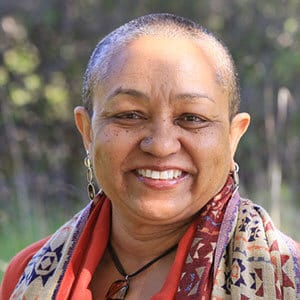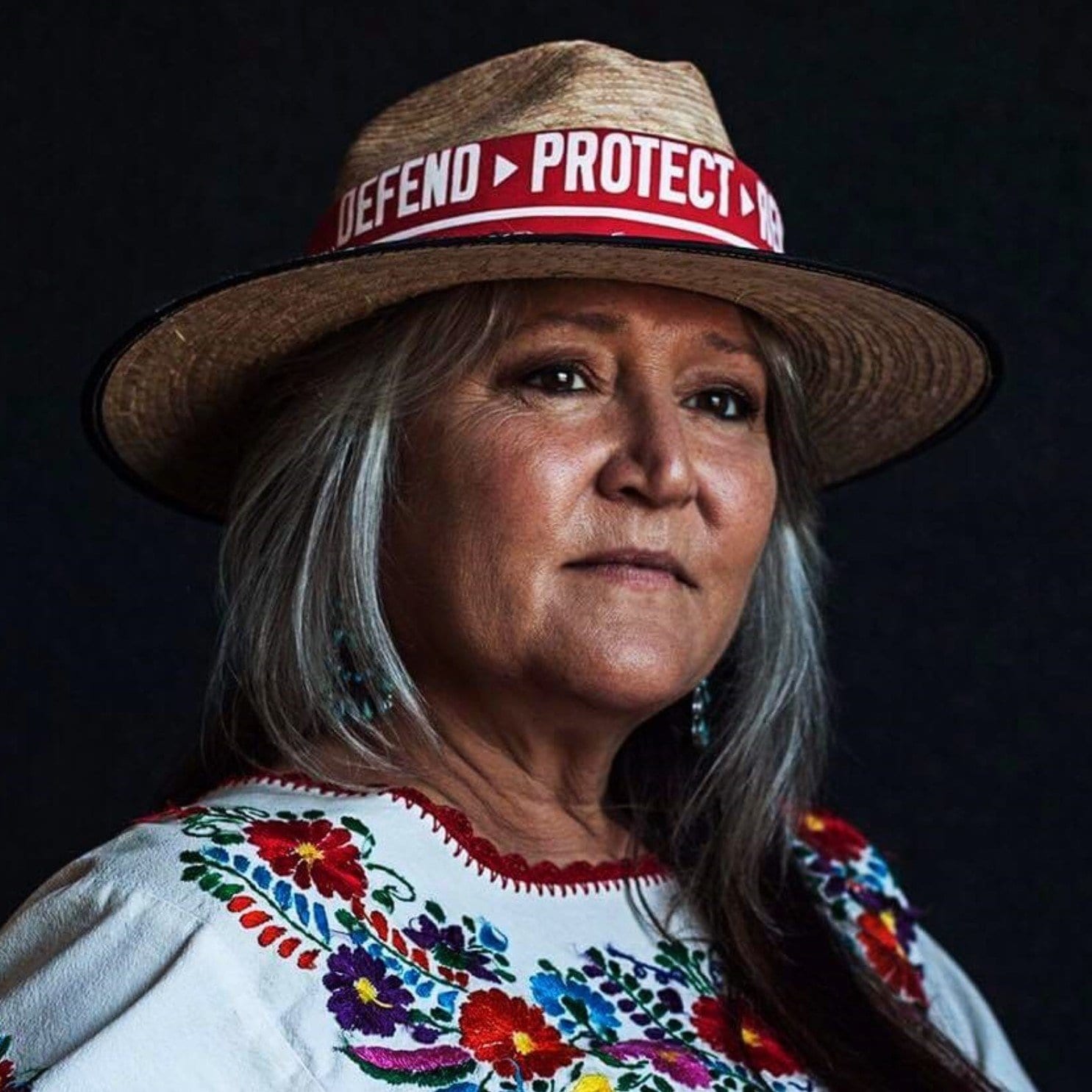Session Resources
Session Leaders

Noliwe Alexander has been a student of Vipassana meditation for close to 20 years. She is a Life & Business Coach dedicating both her coaching & Dharma practice to the POC, LGBT, At Risk and Elder communities. Noliwe is a teacher in training with Spirit Rock and an assistant teacher on CDL6. Noliwe is a wisdom keeper and humbled by the presence of her ancestor’s spirit that lives within and walks beside her.

Pennie Opal Plant is one of the co-founders of Idle No More SF Bay, a co-founder of Movement Rights and a signatory of the Indigenous Women of the Americas Defending Mother Earth Treaty. She has worked for over 35 years to ensure that the sacred system of life continues in a manner that is safe, sustainable and healthy. Her mother is Yaqui and Mexican, her father undocumented Choctaw, Cherokee and European. No members of her family have ever lived on a reservation. She lives in unincorporated Contra Costa County and sees the Chevron refinery in Richmond, California every day.
Opening the Space
We invite you to open your engagement with each session (or group gathering, if applicable) by practicing a Living Earth Acknowledgment. A Living Earth Acknowledgement can nourish our relatedness and avail us to truths beyond domination. Incorporating our ecological nature as well as the calls of justice, it is an exploration, not a formula, to recognize and remember. Through practices like this, we are setting the conditions for shifting minds that are conditioned by domination into more skillful ways of seeing, speaking and acting.
Living Earth Acknowledgment and Prayer
Meditation is an integral part of the EcoSattva journey. If you do not have a meditation practice, now is the perfect time to start. We invite beginners and seasoned practitioners alike to view this guided meditation grounded in our relationship with Earth, created especially for EcoSattva Training participants by our guiding teacher Catherine McGee.
Dharma Offerings
To view videos in full screen, click the expand button ![]() on the lower right.
on the lower right.
Inquiries
We offer here a set of inquiries and group practices that support this step in our journey. Consider these suggestions and feel free to customize, replace and augment. But we strongly suggest that you explore at least one inquiry with each session.
Below are this session’s inquiry questions in bold, followed by a short commentary. We invite you to gently hold these questions. If this form of exploration is new to you or you would like a refresher, you can learn more about inquiry practice here.
- How do I experience the impact of domination?
What is it like to hold the reality not just of environmental destruction, but intersecting racism, patriarchy, colonization, and other forms of human domination? How do you personally sense these impacts, including the ways that you benefit or are harmed? What is it like to feel the disparity of impact itself? What happens when you try to simply acknowledge what arises in the moment, without judgment, blame, or guilt? - What resistance do I carry to letting in the full catastrophe?
The full catastrophe of ecological devastation and human domination has been accruing for millennia. We are all immersed in the river of causes and conditions that has given rise to our collective situation today. There can be great difficulty in seeing this situation clearly, in recognizing how enmeshed we are, in changing our own habits, to say nothing of systems of exploitation. What obstacles arise when you contemplate the immensity and momentum of exploitation? Before the mind travels to solutions and alternatives, what happens when you simply try to let it be? - What is it like to open to the possibility of compassionate accountability?
When people and systems are causing harm, bringing only compassion might strike us as lacking moral clarity. And demanding accountability without compassion can lead to mutual aversion and deadlock. What is it like to simultaneously know that we must take action to stop harm, and to know that harmful behavior is ultimately rooted in misunderstanding: that what hurts one hurts all? What fears and concerns arise as you contemplate compassionate accountability? And what new possibilities do you sense?
Format for group inquiry: Liberating Structures is an excellent resource and we especially like 1-2-4-all and Conversation Café.
Supplemental Resources
From Noliwe’s talk
- “Environmental Justice” according to the U.S. Department of Energy
From Pennie’s Talk
- Indigenous Women of the Americas Defenders of Mother Earth Treaty Compact 2015
- Indigenous Women Rising
- The Red Deal – Indigenous Action to Save Our Earth (working draft)
- Indigenous Climate Action
From Kristin’s Talk
- Rob Burbea: his website, on DharmaSeed, and in discussion on the Emerge Podcast
Additional Resources
- Podcast Episode: Tribes, Indigenous People and the False Urgency of Climate Adaptation from America Adapts, hosted by Doug Parsons and featuring Dr. Kyle Powys Whyte
“When you’re dealing with a non-native population that’s trying to save today’s world and feels urgently about it, they are not recognizing that there’s a problem with the world they are trying to save. They are actually trying to save our dystopia. Our dystopia is one where people don’t relate to us through kinship relationships, reciprocity, accountability, trust and consent. That’s why it’s a concern that when people become more and more urgent, environmental injustice will once again effect indigenous people, people of color and other groups. – Dr. Kyle Powys Whyte, Associate Professor of Philosophy and Community Sustainability and a faculty affiliate of the American Indian & Indigenous Studies and Environmental Science & Policy programs at Michigan State University.
- Video: Dr. Michael Yellow Bird: Decolonizing the Mind
- Book: Black Faces, White Spaces: Reimagining the Relationship of African Americans to the Great Outdoors
